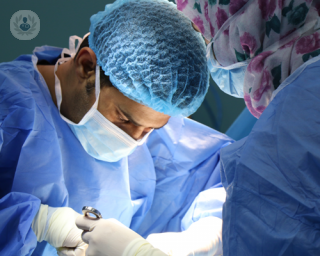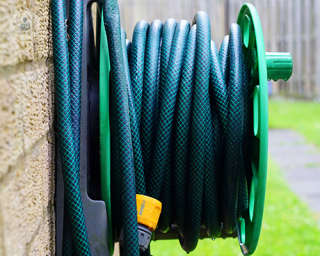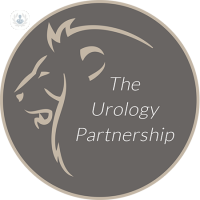Urethral stricture
What urethral stricture?
A urethral stricture consists of a narrowing of part of the urethra, the tube that carries urine outside the body from the bladder. Both men and women have a urethra. An obstruction of that tube can affect your ability to pass urine.

What are the symptoms of urethral stricture?
Symptoms vary substantially based on the severity of the stricture itself. With a mild stricture you may experience minor symptoms such as pain when urinating and general discomfort. In more severe cases, you may experience inability to control urination, urinary tract infections, presence of blood in the urine, weak urine flow and a feeling of incomplete bladder emptying after urination.
What causes urethral stricture?
The most frequent cause of urethral stricture is trauma in the bladder area, caused by falls, accidents, or after surgery. Your cells will try to repair the damage caused by the trauma by producing scar tissue, which in some cases grows to the point of obstructing part of the urethra.
Other common reasons behind scar tissue overgrowth are infections caused by sexually transmitted infections, catheter overuse or an inflammation of the prostate. Rarer causes of urethral stricture include congenital anomalies or urethral cancer.
Which tests help to diagnose urethral stricture?
You may need to take a number of tests in order to get an accurate diagnosis. The first step is an appointment with your GP to study your medical history in order to pinpoint any possible trauma that may have occured. Following this, the doctor may recommend a uroflowmetry test in order to measure the amount of urine voided during urination.
Further tests such as a urine culture test or urethral swab can detect anomalies in the urethra. While the urine culture test detects the presence of bacteria in the urine, a urethral swab can find bacteria nested in the lower urinary tract, which can cause infections.
Radiological exams such as an ultrasound, a retrograde urethrogram and a cystourethography are all effective at detecting where exactly there may be build-up of scar tissue in the urethra.
What is the treatment?
At the moment, the only available treatments are antibiotics-based therapies or, in severe cases, surgery. The most common types of surgery are:
- Urethral dilation: it may be necessary to repeat this procedure from time to time; during the surgery, the urethra is dilated gradually by using a catheter.
- Urethral surgery: elimination of excessive scar tissue by making small incisions.
- Urethrotomy: this procedure involves cutting the obstruction and temporarily placing a catheter.
- Urethral stent: an endoscopic procedure consisting in the insertion of a small stent structure, which restores the obstructed urethral tract to its original size and shape.











